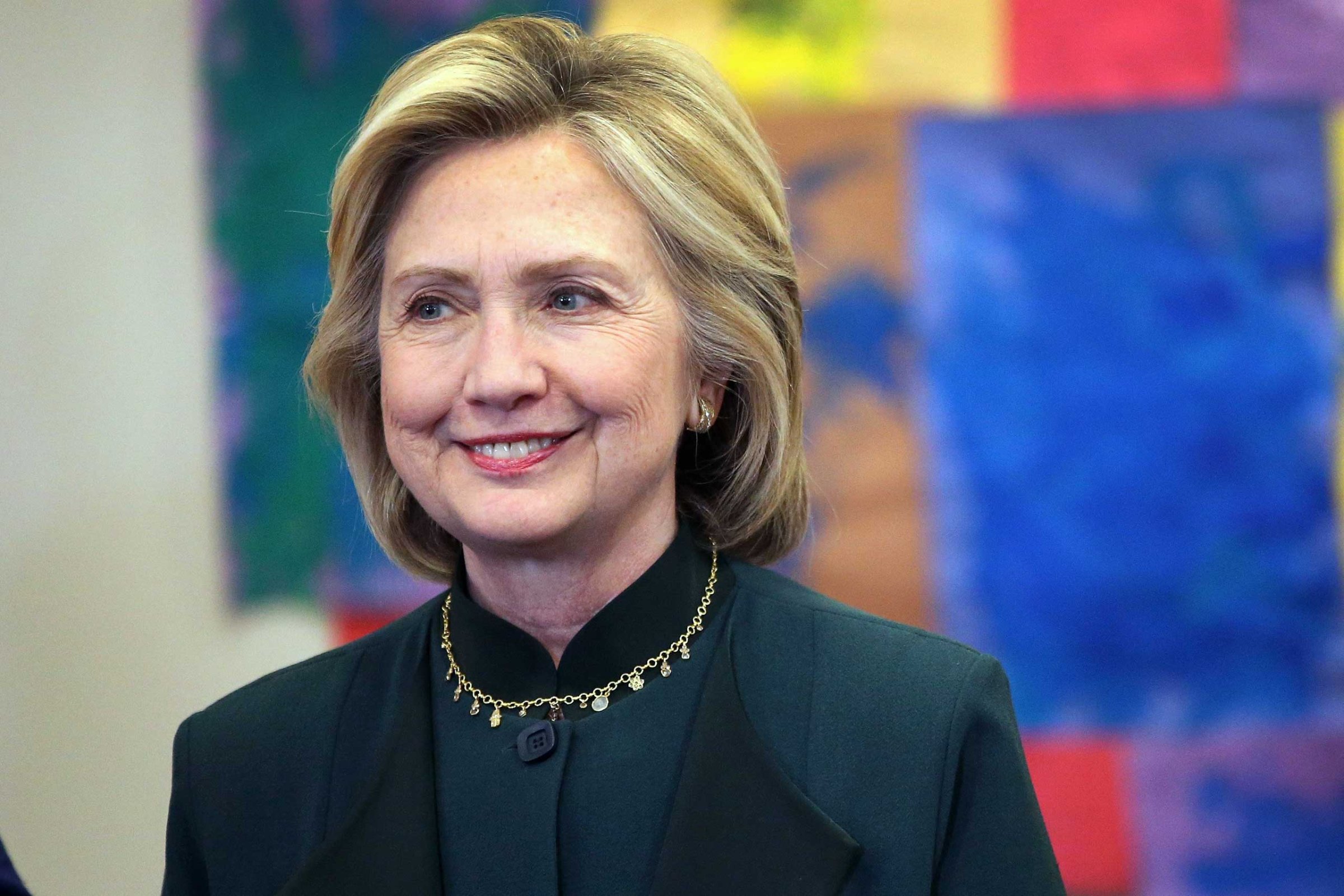
Like many Democrats, Hillary Clinton has talked tough about reining in mega banks. But as her presidential campaign has gotten underway, she’s focused on the homier side of the financial industry: community banks.
At a roundtable in Cedar Falls, Iowa, Clinton spoke on Tuesday less about tightening oversight on Wall Street and more about loosening regulations for banks on Main Street. She argued that red tape and paperwork for small banks across the country are holding back small businesses by making it harder to get much-needed loans.
At times, listeners might have even mistaken Clinton for a moderate Republican.
“Today,” Clinton said, “local banks are being squeezed by regulations that don’t make sense for their size and mission—like endless examinations and paperwork designed for banks that measure their assets in the many billions.”
“And when it gets harder for small banks to do their jobs, it gets harder for small businesses to get their loans,” she said. “Our goal should be helping community banks serve their neighbors and customers the way they always have.”
Community banks tend have less than $1 billion in assets, are usually based in rural or suburban communities and are the kind of place your uncle in Idaho might go for money to open an antique shop. Touting small businesses is a tried-and-true trope for candidates on both sides of the aisle. For office-seekers from Barack Obama to Marco Rubio, the subject is as noncontroversial and all-American as crabgrass.
The difference, then, comes at how politicians want to handle bigger banks. Congress right now is debating how far to exempt banks from certain regulations. Democratic lawmakers generally want to reduce them only for smaller banks; some Republicans want to exempt all banks, an approach Clinton criticized.
Big banks in the United States have become increasingly large and powerful in the seven years since the financial crisis. Of the 6,000-odd banks in the United States, the five largest control nearly half of the country’s banking wealth, according to a December study. In 1990, the five biggest banks controlled just 10% of the industry’s assets.
Small banks complain that federal regulation in the aftermath of the Dodd-Frank legislation is contributing to a decline in their numbers. Annual examinations at a community banks, for instance, require staff to walk regulators through paperwork. Filling out paperwork and paying for compliance lawyers to deal with new Dodd-Frank stipulations are burdensome extra costs, banks say. And new rules can impose high damages on lenders who do make unsafe loans.
“There’s an inherent advantage in scale,” said Mike Calhoun, president of the Center for Responsible Lending, pointing out that small banks often have more trouble paying for regulation compliance. “Community banks, being smaller, have less business to spread the cost of regulations over.”
It’s an issue that resonates with Iowa bankers, says John Sorensen, president and CEO of the Iowa Bankers Association. “A lot of the banks we have across Iowa are small businesses with 10 to 30 employees that have been interrupted in their ability to serve their customers through a good part of Dodd-Frank,” he said.
But some say the discussion about scrapping community bank regulations as Clinton suggests is a distraction. Small banks were in steady decline for many years before Dodd-Frank, and they are protected from liability on certain loans that big banks are not. And regulators argue that preventing risky mortgages of the kind that brought on the financial crisis is a good thing.
Much of the push to deregulate community banks comes from bigger institutions who want exemptions from regulation themselves. “If you were able to somehow magically trace who is whipping up frenzy about regulator burden on small banks, you’d find its trade associations at the behest of bigger banks,” said Julia Gordon of the Center for American Progress, a left-leaning think tank that has supplied some top officials in the Clinton campaign.
During the roundtable, Donna Sorensen, chair of the board of Cedar Rapids Bank and Trust and a participant on Tuesday, suggested to Clinton that more U.S. Small Business Administration-supported loans come with no fees. Clinton took notes and nodded in assent.
“If we really wanted to jumpstart more community bank lending, part of what we would do is exactly that—raise the limits to avoid the upfront fee” for businesses that need loans, Clinton said.
Clinton did not say specifically what regulations she would remove if she were elected president, but locals in Independence, Iowa, where Clinton stopped by for a visit after her small business roundtables, asked her to hold true to her sentiments. Terry Tekippe, whose family owns an independent hardware store, walked onto the street as Clinton walked by. “Keep us in focus,” Tekippe said.
“I want to be a small business president, so I am,” Clinton called back as she continued down the street.
More Must-Reads from TIME
- Donald Trump Is TIME's 2024 Person of the Year
- TIME’s Top 10 Photos of 2024
- Why Gen Z Is Drinking Less
- The Best Movies About Cooking
- Why Is Anxiety Worse at Night?
- A Head-to-Toe Guide to Treating Dry Skin
- Why Street Cats Are Taking Over Urban Neighborhoods
- Column: Jimmy Carter’s Global Legacy Was Moral Clarity
Contact us at letters@time.com